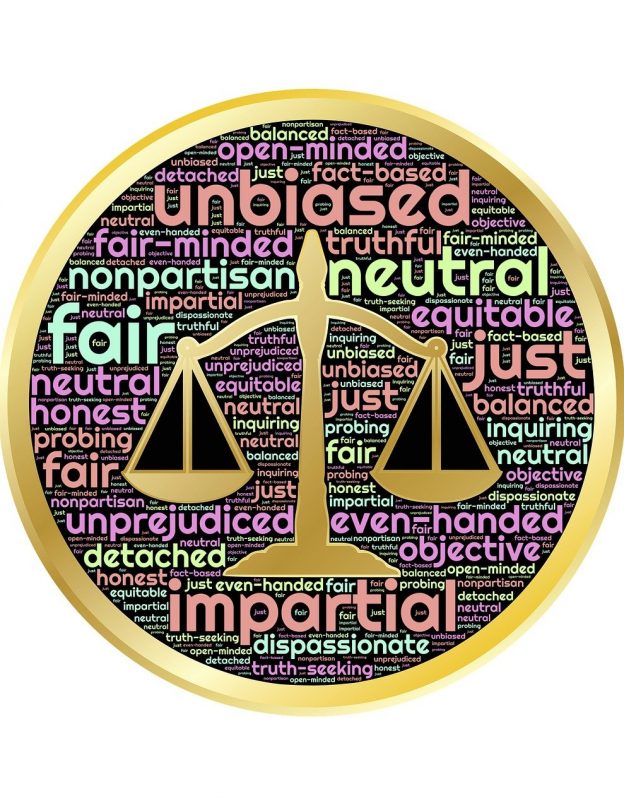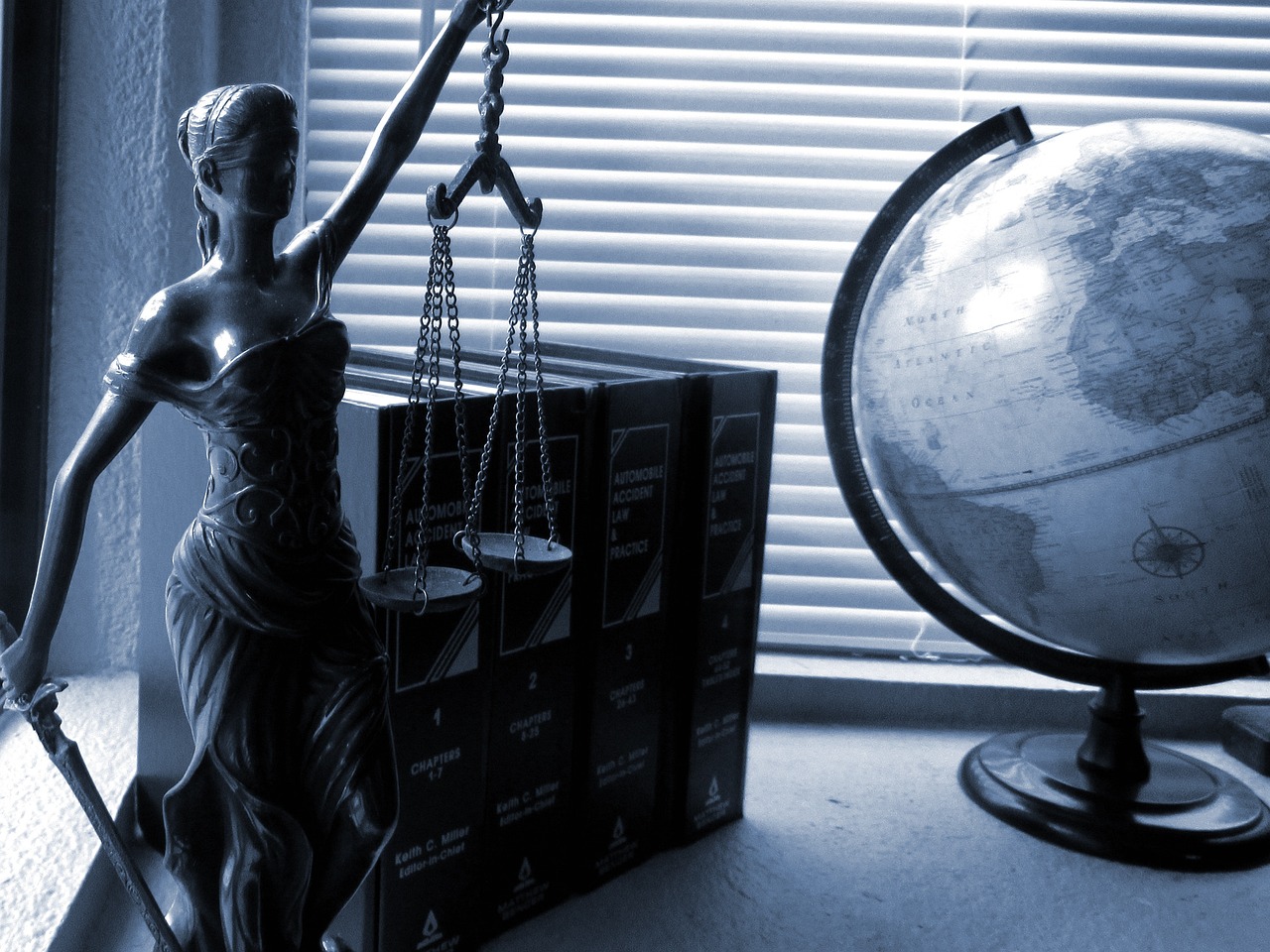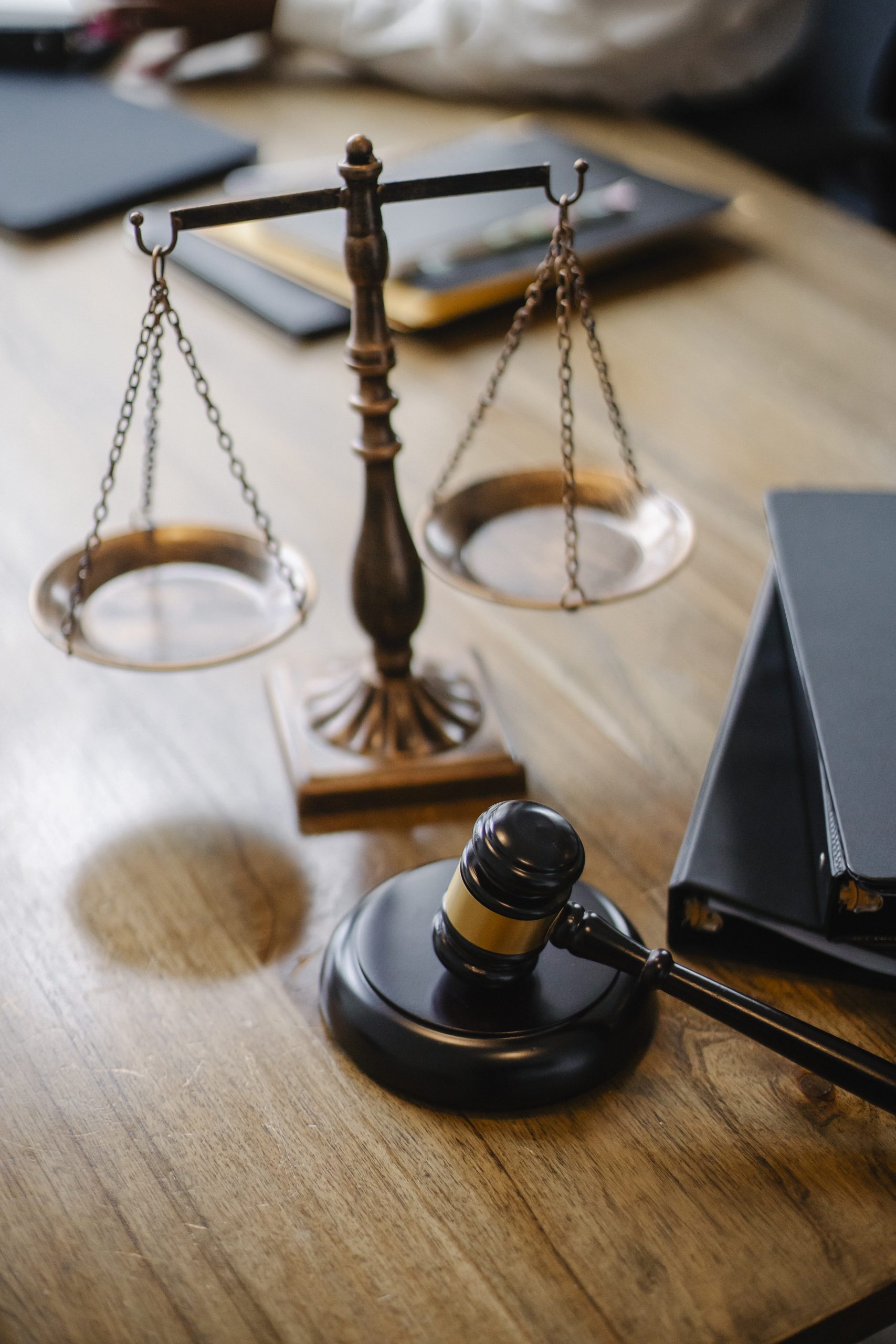In need of a defense strategy that ensures your rights are protected, and your reputation remains intact? Look no further than the Criminal Defense Representative. With a deep understanding of the legal system and a wealth of experience, this lawyer specializes in representing businesses and business owners facing criminal charges. From white-collar crimes to regulatory violations, the Criminal Defense Representative has the expertise and knowledge to navigate through complex legal proceedings. Through informative blog posts, engaging case studies, and addressing common legal concerns, this lawyer aims to provide insights and guidance to those facing criminal charges. Don’t face the criminal justice system alone – call the Criminal Defense Representative today for a consultation and take the next step in protecting your future.
Overview
Importance of Criminal Defense Representative
A criminal defense representative plays a crucial role in the criminal justice system. They are responsible for protecting the rights of individuals who have been accused of committing a crime. The consequences of a criminal conviction can be severe and long-lasting, which is why it is essential to have a skilled and knowledgeable defense representative by your side. They will advocate for your rights, ensure fair treatment, and work towards the best possible outcome for your case.
What Does a Criminal Defense Representative Do?
A criminal defense representative is a legal professional who specializes in defending individuals who have been accused of committing a crime. Their primary duty is to provide legal representation, guidance, and support throughout the entire criminal defense process. They have a deep understanding of criminal law and procedures, allowing them to develop effective defense strategies tailored to each individual case. From the initial arrest to the final verdict, a criminal defense representative is there to protect your rights, challenge evidence, negotiate plea bargains, and provide guidance every step of the way.
Qualifications and Skills
Legal Education and Licensing
To become a criminal defense representative, extensive legal education is required. They must first complete a Bachelor’s degree, followed by attending law school and obtaining a Juris Doctor (J.D.) degree. After graduating from law school, they must pass the bar exam in the jurisdiction where they intend to practice. This rigorous process ensures that criminal defense representatives have the necessary knowledge and skills to navigate the complexities of the legal system and provide effective representation to their clients.
Knowledge of Criminal Law
A comprehensive understanding of criminal law is essential for a criminal defense representative. They must be well-versed in both federal and state laws pertaining to various types of crimes. By staying updated on the latest legal precedents, statutes, and regulations, they can develop strong defense strategies and effectively challenge the prosecution’s case. Their knowledge of criminal law allows them to identify potential legal defenses, present arguments persuasively, and protect the rights of their clients.
Strong Communication and Negotiation Skills
Effective communication skills are a cornerstone of a successful criminal defense representative. They must be able to clearly communicate with clients, prosecutors, judges, and other legal professionals. By actively listening to their clients, they can better understand their needs and concerns. Additionally, they must possess strong negotiation skills to advocate for their clients’ best interests during plea bargaining or settlement negotiations. Their ability to articulate legal arguments and persuade others is instrumental in achieving a favorable outcome.
Analytical and Research Skills
Analytical and research skills are vital for a criminal defense representative to build a strong defense strategy. They must meticulously analyze evidence, case law, statutes, and other legal documents to identify weaknesses in the prosecution’s case. Their ability to conduct thorough research allows them to uncover critical information, find relevant precedents, and craft compelling legal arguments. By combining their analytical and research skills, they can effectively challenge the prosecution’s evidence and present a strong defense in court.

Role of a Criminal Defense Representative
Client Representation
One of the primary roles of a criminal defense representative is to provide dedicated and passionate client representation. They serve as a steadfast advocate for their clients, ensuring that their rights are protected throughout the entire criminal defense process. They actively listen to their clients, address their concerns, and provide personalized guidance. By building a strong attorney-client relationship based on trust and open communication, they can better understand their clients’ needs and develop effective defense strategies.
Legal Advice and Guidance
A criminal defense representative provides crucial legal advice and guidance to their clients. They thoroughly explain the charges, potential consequences, and available defense options. By educating their clients about the legal process, they empower them to make informed decisions about their case. They offer guidance on how to interact with law enforcement, what to expect during court proceedings, and what actions to take to strengthen their defense. By ensuring their clients have a clear understanding of their rights and the legal implications of their actions, they can work together to achieve the best possible outcome.
Investigation and Evidence Gathering
Another essential role of a criminal defense representative is to conduct a thorough investigation and gather evidence to support their client’s defense. They review police reports, interview witnesses, collect medical records, and examine any relevant physical evidence. By meticulously examining the facts of the case, they can identify potential inconsistencies, weaknesses in the prosecution’s evidence, or violations of their client’s constitutional rights. This evidence gathering process allows them to build a strong defense strategy and challenge the prosecution’s case effectively.
Negotiation and Plea Bargaining
Criminal defense representatives are skilled negotiators who strive to obtain the best possible outcome for their clients. They engage in plea negotiations with the prosecution, aiming to secure a favorable plea deal that reduces charges or penalties. Through strategic negotiation, they advocate for their clients’ best interests, seeking to minimize the potential consequences of a conviction. By leveraging their knowledge of the law and the facts of the case, they can negotiate from a position of strength and achieve the most favorable outcome possible.
Courtroom Representation
When a case goes to trial, the criminal defense representative becomes the client’s voice in the courtroom. They present arguments, question witnesses, and challenge the prosecution’s case. Their courtroom representation is characterized by strong advocacy skills, persuasive argumentation, and a deep understanding of the law. They are well-prepared to counter the prosecution’s evidence, cross-examine witnesses effectively, and present a compelling defense. Their goal is to raise reasonable doubt and persuade the judge or jury to deliver a verdict in their client’s favor.
Types of Criminal Cases
Felonies
Felonies are serious crimes that carry severe penalties, including incarceration for more than one year. They encompass crimes such as murder, rape, arson, robbery, and drug trafficking. Defending against felony charges requires the expertise of a skilled criminal defense representative due to the complexity and potential consequences involved.
Misdemeanors
Misdemeanors are lesser offenses compared to felonies and are generally punishable by up to one year in jail. They include crimes such as petty theft, disorderly conduct, and simple assault. While the penalties for misdemeanors may be less severe, a criminal defense representative is still needed to protect the rights and interests of the accused individual.
White Collar Crimes
White collar crimes typically involve non-violent offenses committed in the course of business or professional conduct. Examples include fraud, embezzlement, insider trading, and identity theft. The complex nature of these crimes requires the expertise of a criminal defense representative with experience in handling white collar cases.
Drug and Alcohol Related Crimes
Drug and alcohol-related crimes involve offenses such as drug possession, drug trafficking, driving under the influence (DUI), and public intoxication. These cases often involve complex legal issues and can carry severe penalties. A criminal defense representative specializing in these types of cases can navigate the intricacies of drug and alcohol laws and build a strong defense tailored to the unique circumstances of each case.
Juvenile Crimes
Juvenile crimes refer to offenses committed by individuals who are under the age of 18. These cases are typically handled in juvenile court and aim to rehabilitate, rather than punish, young offenders. A criminal defense representative experienced in juvenile law can provide the necessary guidance and representation to protect the rights and interests of the young accused individual.

Building a Strong Defense
Case Assessment and Strategy
The first step in building a strong defense is conducting a comprehensive assessment of the case. A criminal defense representative carefully analyzes the evidence, interviews witnesses, and reviews relevant laws to identify strengths and weaknesses. Based on this assessment, they develop a strategic defense plan to challenge the prosecution’s case and protect their client’s rights.
Examining Witnesses and Evidence
Examining witnesses and evidence plays a crucial role in the defense strategy. A criminal defense representative thoroughly investigates the credibility of witnesses, analyzes their statements, and cross-examines them in court. They also meticulously review the prosecution’s evidence, scrutinizing its admissibility and reliability. By challenging witnesses and evidence, they can weaken the prosecution’s case and raise doubts in the minds of the judge or jury.
Legal Challenges
A skilled criminal defense representative has the knowledge and experience to identify potential legal challenges in a case. They review procedural errors, violations of constitutional rights, and other legal issues that may lead to the suppression of evidence or dismissal of charges. These legal challenges are critical in weakening the prosecution’s case and protecting the defendant’s rights.
Expert Witnesses
In some cases, expert witnesses may be necessary to provide specialized knowledge or opinions that can support the defense strategy. A criminal defense representative works with expert witnesses such as forensic specialists, medical professionals, or psychologists to provide objective analysis and interpretation of evidence. Expert witnesses can provide invaluable insights and perspectives that strengthen the defense’s argument and raise doubts about the prosecution’s claims.
Mitigating Factors
Identifying and presenting mitigating factors is an essential aspect of building a strong defense. A criminal defense representative highlights factors such as a defendant’s lack of criminal record, good character, or extenuating circumstances that may have influenced their behavior. By presenting these mitigating factors, they aim to reduce the severity of the charges or penalties and emphasize the need for a fair and just resolution.
Criminal Defense Tactics
Presumption of Innocence
One of the fundamental principles of the criminal justice system is the presumption of innocence. A criminal defense representative actively asserts this principle, ensuring that their client is treated as innocent until proven guilty. They challenge the prosecution’s burden of proof, raising doubts and presenting alternative explanations to create reasonable doubt in the mind of the judge or jury.
Reasonable Doubt
A high standard of proof, known as “beyond a reasonable doubt,” is required for a conviction in criminal cases. A criminal defense representative strategically raises doubts about the prosecution’s evidence, witnesses, and case as a whole. By presenting alternative theories, highlighting inconsistencies, and emphasizing weak points, they strive to establish reasonable doubt in the minds of the judge or jury.
Legal Technicalities and Procedures
A skilled criminal defense representative is well-versed in legal technicalities and procedures that can potentially benefit the defense. They analyze every aspect of the case, including search and seizure procedures, Miranda rights violations, and chain of custody issues. By identifying procedural errors or violations, they may be able to suppress evidence or have charges dismissed.
Cross-Examination
Cross-examination is a critical tactic used by criminal defense representatives during trial. They skillfully question witnesses presented by the prosecution, aiming to expose inconsistencies, biases, or ulterior motives that may undermine their credibility. Cross-examination allows the defense to challenge the prosecution’s version of events and raise doubts about the accuracy or truthfulness of the witness’s testimony.
Character and Credibility Attacks
In some cases, attacking the character and credibility of witnesses can be an effective defense tactic. A criminal defense representative conducts thorough investigations into the backgrounds of witnesses to uncover any potential biases, criminal records, or motives that could impact their credibility. By challenging the witnesses’ character or credibility, they can weaken the prosecution’s case and raise doubts about the veracity of their testimony.
Working with Clients
Empathy and Support
A skilled criminal defense representative recognizes the emotional impact that criminal charges can have on their clients. They provide empathy, support, and reassurance throughout the entirety of the legal process. By understanding their clients’ fears and concerns, they can offer the necessary emotional support to alleviate their anxieties and help them navigate the challenges they face.
Clear Communication
Clear communication is vital between a criminal defense representative and their clients. They explain complex legal concepts in a clear and accessible manner, ensuring that their clients understand their rights, the charges they face, and the potential consequences. By maintaining open lines of communication, they address any questions or concerns their clients may have, fostering a trusting attorney-client relationship.
Setting Expectations
A criminal defense representative sets realistic expectations for their clients. They provide a thorough assessment of the case, explain the potential outcomes, and outline the range of possible scenarios. By setting clear expectations from the beginning, they ensure that their clients have a realistic understanding of the legal process and are prepared for what lies ahead.
Maintaining Confidentiality
Confidentiality is an essential aspect of the attorney-client relationship. A criminal defense representative strictly adheres to the duty of confidentiality, ensuring that all communications between themselves and their clients remain confidential. This confidentiality creates a safe and trusting environment, allowing clients to openly discuss their case and share sensitive information without fear of it being disclosed.
Educating Clients
A criminal defense representative takes the time to educate their clients about the legal process and their rights. They explain the potential consequences of different legal strategies, the importance of making informed decisions, and the impact of various actions on their case. By empowering their clients with knowledge, they equip them to actively participate in their defense and make well-informed decisions.
Navigating the Legal System
Court Processes and Procedures
Navigating the court processes and procedures is complex and requires a deep understanding of the legal system. A criminal defense representative guides their clients through each stage of the legal process, explaining the purpose, requirements, and potential outcomes. By providing insights into court processes and procedures, they ensure that their clients are prepared and know what to expect.
Bail and Pretrial Release
Securing pretrial release is a significant concern for individuals facing criminal charges. A criminal defense representative can advocate for their clients’ release on bail or request alternative forms of release. They present compelling arguments to the court, emphasizing their clients’ ties to the community, lack of flight risk, and commitment to attending future court hearings. By effectively addressing concerns about flight risk and public safety, they increase the chances of securing pretrial release.
Plea Bargaining
Plea bargaining is a common practice in criminal cases, allowing defendants to negotiate with the prosecution to reach a mutually beneficial agreement. A criminal defense representative engages in plea negotiations on behalf of their clients, striving to secure a more favorable outcome. They assess the strength of the prosecution’s case, analyze the potential risks and benefits of accepting a plea deal, and provide guidance in making informed decisions.
Trials and Sentencing
If a case proceeds to trial, a criminal defense representative becomes the client’s advocate in the courtroom. They present evidence, cross-examine witnesses, and deliver persuasive arguments to challenge the prosecution’s case. During sentencing, they advocate for leniency and present mitigating factors to reduce the severity of the penalties imposed. A skilled criminal defense representative’s courtroom presence and strategic arguments can greatly influence the outcome of a trial and sentencing.
Appeals and Post-Conviction Relief
In the event of an unfavorable outcome, a criminal defense representative can guide their clients through the appeals process or seek post-conviction relief. They review the trial record, identify potential errors or constitutional violations, and file appeals to challenge the conviction or sentence. With their expertise in appellate law, they can present persuasive arguments to higher courts, seeking to have the conviction overturned or the sentence reduced.

FAQs
1. What are the potential penalties for a criminal charge?
The potential penalties for a criminal charge can vary greatly, depending on the nature and severity of the offense. Felonies often carry substantial prison sentences, ranging from several years to life in prison. Misdemeanors are generally punishable by up to one year in jail. Fines, probation, community service, and restitution may also be imposed as part of the penalties.
2. How long does the criminal defense process take?
The duration of the criminal defense process can vary widely depending on several factors, including the complexity of the case, court availability, and negotiation or trial proceedings. Some cases may be resolved quickly through plea negotiations, while others may extend to several months or even years if they proceed to trial or involve intricate legal issues.
3. Can a criminal defense representative handle my case even if I am guilty?
Yes, a criminal defense representative can provide representation and legal advice regardless of guilt or innocence. It is their duty to ensure that your rights are protected throughout the legal process and to advocate for the best possible outcome given the circumstances of your case. They will work diligently to challenge the prosecution’s evidence, negotiate plea bargains, and explore all available defense strategies.
4. Are there alternatives to jail time for certain crimes?
Yes, there are alternatives to jail time for certain crimes. Depending on the nature of the offense and the individual’s criminal history, alternatives such as probation, community service, treatment programs, or diversion programs may be available. A skilled criminal defense representative can explore these options and advocate for alternatives to incarceration.
5. How much does hiring a criminal defense representative cost?
The cost of hiring a criminal defense representative can vary depending on various factors, including the complexity of the case, the attorney’s experience and expertise, and the geographical location. Attorneys may charge an hourly rate, a flat fee, or a combination of the two. It is essential to discuss fees and payment arrangements with your chosen attorney during the initial consultation to ensure a clear understanding of the financial aspect of legal representation.
Conclusion
Protecting your rights and future requires the expertise of a skilled criminal defense representative. Their knowledge of criminal law, strong communication skills, and ability to build a robust defense strategy are essential in navigating the complexities of the legal system. Whether you are facing felony charges, misdemeanor offenses, or white-collar crimes, a criminal defense representative will provide dedicated advocacy, legal advice, and support throughout the entire process. Do not leave your future to chance; consult with a skilled criminal defense representative to ensure the best possible outcome for your case.




















































